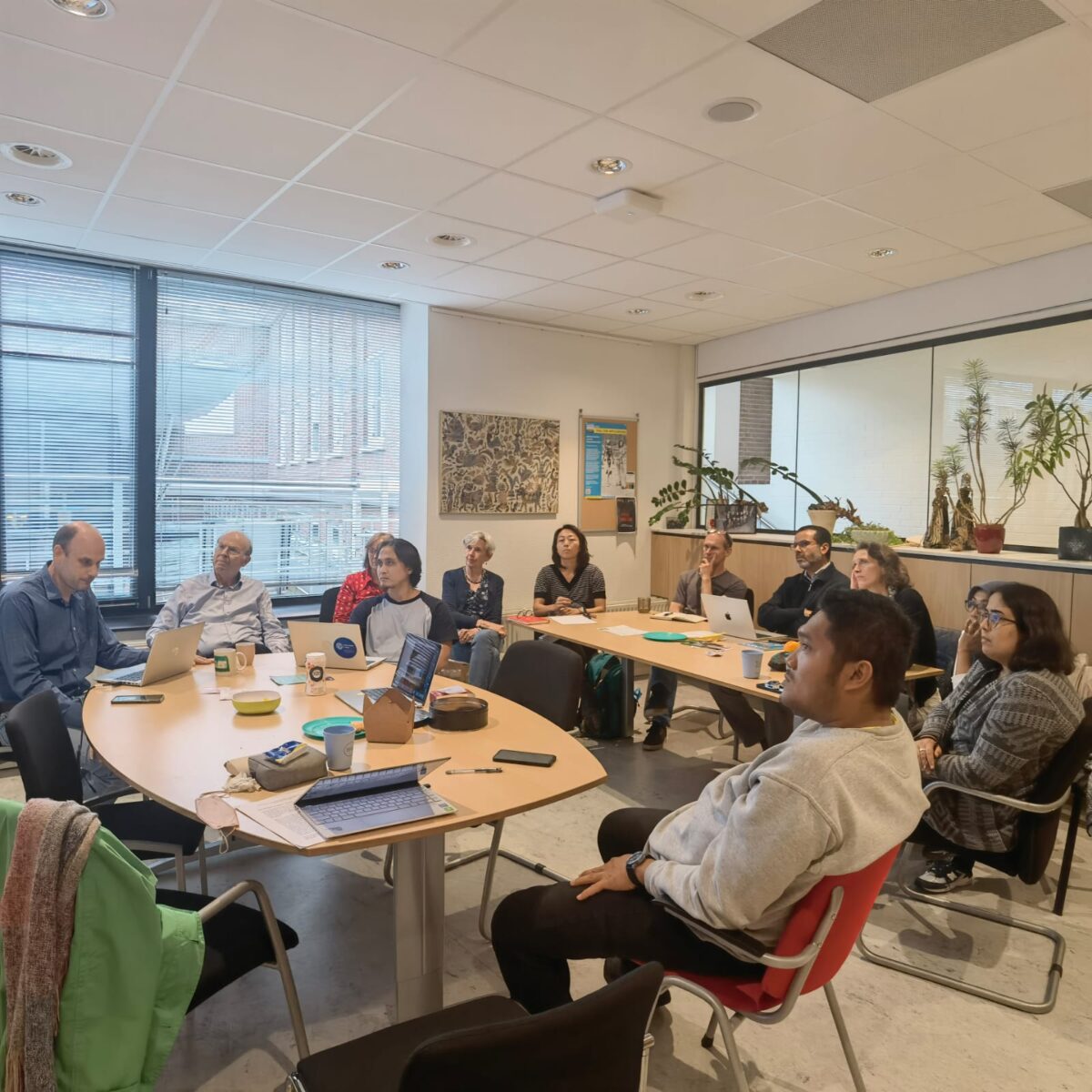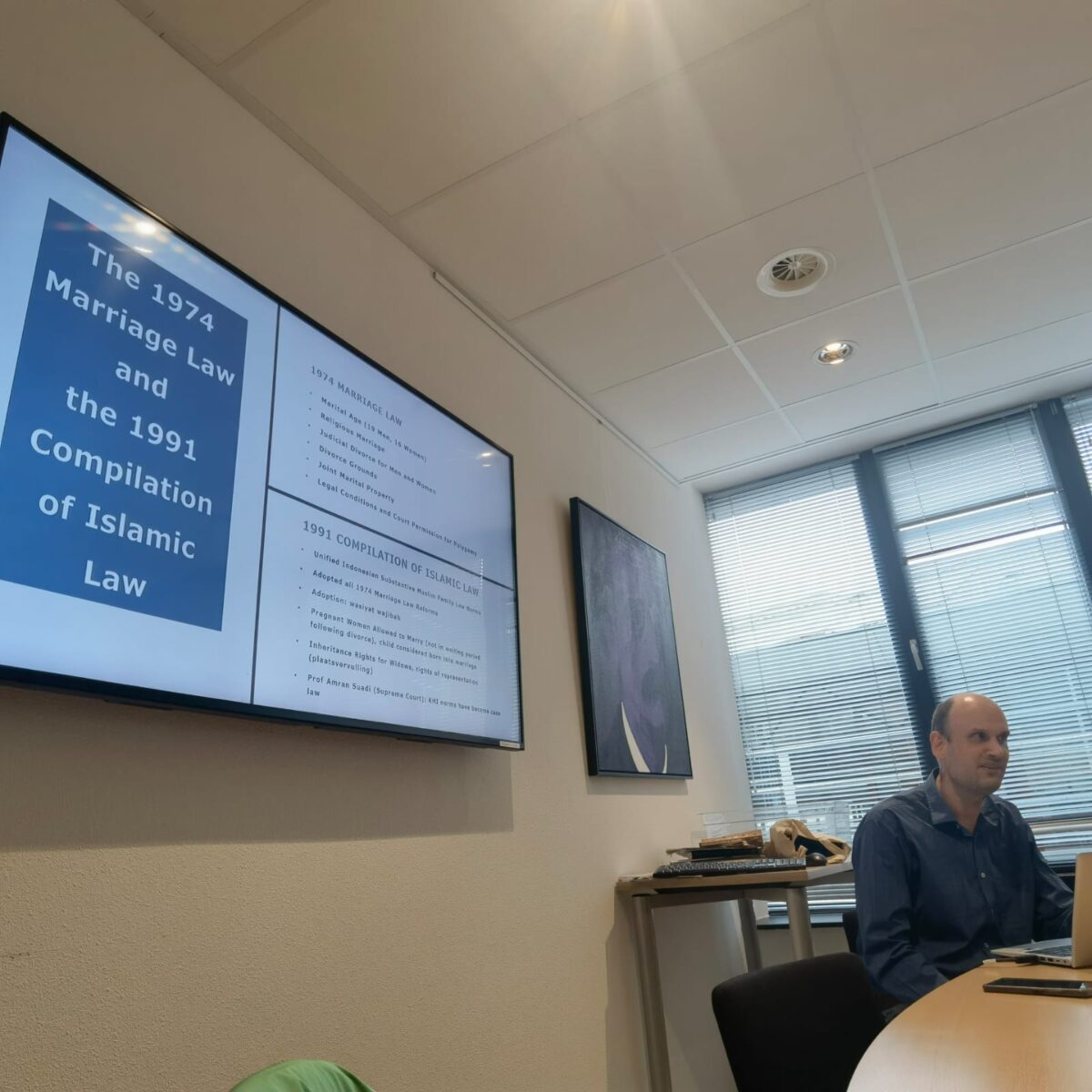GUEST LECTURE STIJN VAN HUIS AT VAN VOLLENHOVEN INSTITUTE LEIDEN UNIVERSITY
On 28 September 2023 Stijn van Huis, gave a guest lecture on “Developments in Indonesian Muslim Family Law”, as part of his visiting program at the Van Vollenhoven Institute of Law and Society (VVI), Leiden Law School. The lecture was opened by Prof. Adriaan Bedner, director of the VVI. Lecturers and PhD students at Leiden University with a specialization or interest in Muslim Family Law attended the lecture, as well as Prof. Emeritus and former director of VVI. Prof Jan Michiel Otto.
In the lecture Stijn van Huis showed how not the Indonesian legislator, but increasingly the Indonesian Supreme Court and Constitutional Court consider women’s and children’s interests in their regulations, policies, guidelines, and rulings. This trend also becomes obvious when one analyses judgments of the Indonesian Islamic courts (pengadlian agama): an increasing number of courts refers to additional sources to the Compilation of Islamic Law and the Marriage Law to legitimate judgments favorable to the interests of women and children, such as fiqh, the Child Protection Law, Constitutional Court rulings, Supreme Court cases (yurisprudensi), Supreme Court regulations (PerMA) and Supreme Court guidelines (SEMA).
Examples discussed include: The ability of fathers to recognize (but not legally legitimize) children born out of wedlock or born into unregistered marriage; Support responsibilities that arise from biological fatherhood – even if the child is not a legal child of the father; The guideline that women who initiate divorce must not be considered disobedient (nusyuz) unless proven – meaning that these women retain their post-divorce rights on nafkah iddah and mutah; The guideline that if upon divorce the communal property concerns the only home of the child and his/her mother, in the best interests of the child this property may not be sold and divided until the child reaches adulthood.
The lecture was followed by a Q&A and a lively discussion occurred, comparing family law trends in Indonesia with those in Morocco, Libya, Egypt and elsewhere. […]





Comments :